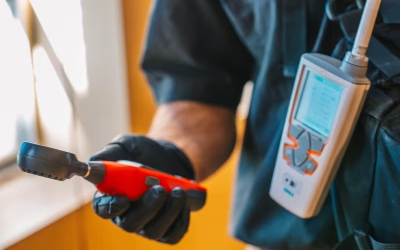If you’re a high school baseball player with dreams of playing at the highest level, getting recruited by a Division 1 (D1) college baseball program should be at the top of your list. D1 programs are highly competitive and offer athletes the opportunity to compete at a national level. But how do you get noticed by college coaches, and what steps should you take to increase your chances of being recruited? In this guide, we’ll walk you through the essential steps to get recruited by D1 baseball programs and provide NCAA baseball recruiting tips that will help you stand out from the competition.
Understanding the D1 Baseball Recruiting Process
The Path to College Baseball
Before diving into the specific steps, it’s important to understand how the recruiting process for D1 baseball programs works. College baseball coaches often begin recruiting athletes during their sophomore or junior year of high school, sometimes even earlier. The NCAA has strict recruiting rules, including when coaches can begin contacting recruits and how often they can communicate. Understanding these rules will help you navigate the recruiting process with ease.
D1 programs are looking for elite athletes who not only excel on the field but also possess a strong academic record. Coaches look for recruits who can contribute to their team both athletically and academically, as players must meet NCAA eligibility standards to compete at the D1 level.
Key Skills and Traits College Baseball Coaches Look For
What Makes You Stand Out?
While athletic ability is obviously essential, coaches are looking for specific traits in recruits that show potential for success at the D1 level. Here’s what you need to focus on:
- Strong Fundamentals: Coaches look for players who are fundamentally sound in every aspect of the game—whether it’s pitching, hitting, or fielding. Make sure you can execute the basics consistently.
- Physical Fitness and Strength: D1 baseball is a physically demanding sport. Being in peak physical condition, with strength, speed, and agility, is crucial for standing out in the recruiting process.
- Mental Toughness: D1 baseball players must be mentally tough to handle the pressures of high-level competition. Coaches look for athletes who stay focused under pressure, bounce back from mistakes, and demonstrate a high level of resilience.
- Work Ethic: The recruiting process is highly competitive, and coaches want athletes who are committed to constant improvement. A strong work ethic, both on and off the field, is a must.
Building a Strong Recruiting Profile
Showcase Your Skills and Personality
Your recruiting profile is the first impression coaches will have of you, so it needs to be both comprehensive and appealing. Here are some tips for building a standout profile:
- Highlight Video: Create a highlight reel that showcases your best skills. Include game footage, pitching mechanics, batting highlights, and fielding plays. The video should be no more than 3-5 minutes long and showcase a variety of your skills.
- Stats and Achievements: Provide detailed statistics such as your batting average, ERA (for pitchers), fielding percentage, home runs, stolen bases, and other key metrics that demonstrate your performance on the field. Don’t forget to include any awards, tournament wins, or honors you’ve received.
- Academic Information: D1 programs value athletes who excel in the classroom as much as on the field. Include your GPA, standardized test scores, and academic honors to demonstrate your eligibility and academic commitment.
- Contact Information: Ensure your contact information is easily accessible. Include links to your social media profiles (Instagram, Twitter) and make sure your phone number and email are up to date.
Reaching Out to D1 College Coaches
Initiate Contact and Build Relationships
Once you have a strong recruiting profile, it’s time to start reaching out to college coaches. Don’t wait for coaches to come to you—take the initiative to make contact:
- Send a Personalized Email: Introduce yourself and explain why you’re interested in their program. Include a link to your highlight video, your academic information, and why you believe you’d be a good fit for their team.
- Follow Up: If you don’t receive a response after a few weeks, follow up with another email or message. Be polite and professional in all your communication.
- Social Media Interaction: Many coaches monitor social media for potential recruits. Follow coaches on Twitter and Instagram, engage with their posts, and tag them in relevant content (such as highlight videos or training updates).
Be sure to be respectful of their time. Coaches are often busy and receive numerous inquiries from recruits, so maintain professionalism in all interactions.
Attend Showcases, Camps, and Tournaments
Get in Front of Coaches
One of the most effective ways to get recruited by a D1 program is to attend showcases, camps, and tournaments where college coaches are present. These events allow you to demonstrate your skills in a live setting and get noticed by multiple programs at once. Here’s how to maximize your experience:
- Showcases: Attend D1 baseball showcases where scouts and coaches from various programs are in attendance. These events often include evaluations, drills, and game play, giving coaches a comprehensive look at your talent.
- Camps: College-hosted baseball camps provide a great opportunity to get in front of a specific program’s coaching staff. Many coaches run camps to evaluate potential recruits and often offer scholarships or invites to their programs.
- Tournaments: Participate in high-level baseball tournaments that attract college scouts. Many D1 coaches attend these events to scout for talent, so competing in these tournaments increases your chances of being seen.
Be sure to keep your highlight reel and recruiting profile up to date and bring it with you to these events.
NCAA Eligibility Requirements and the Recruiting Timeline
What You Need to Know to Stay on Track
To play at a D1 college, you must meet the NCAA eligibility requirements. This includes completing specific coursework in high school, maintaining a minimum GPA, and meeting standardized testing requirements. The NCAA eligibility center is where recruits must register to confirm they meet all the necessary academic and athletic standards.


